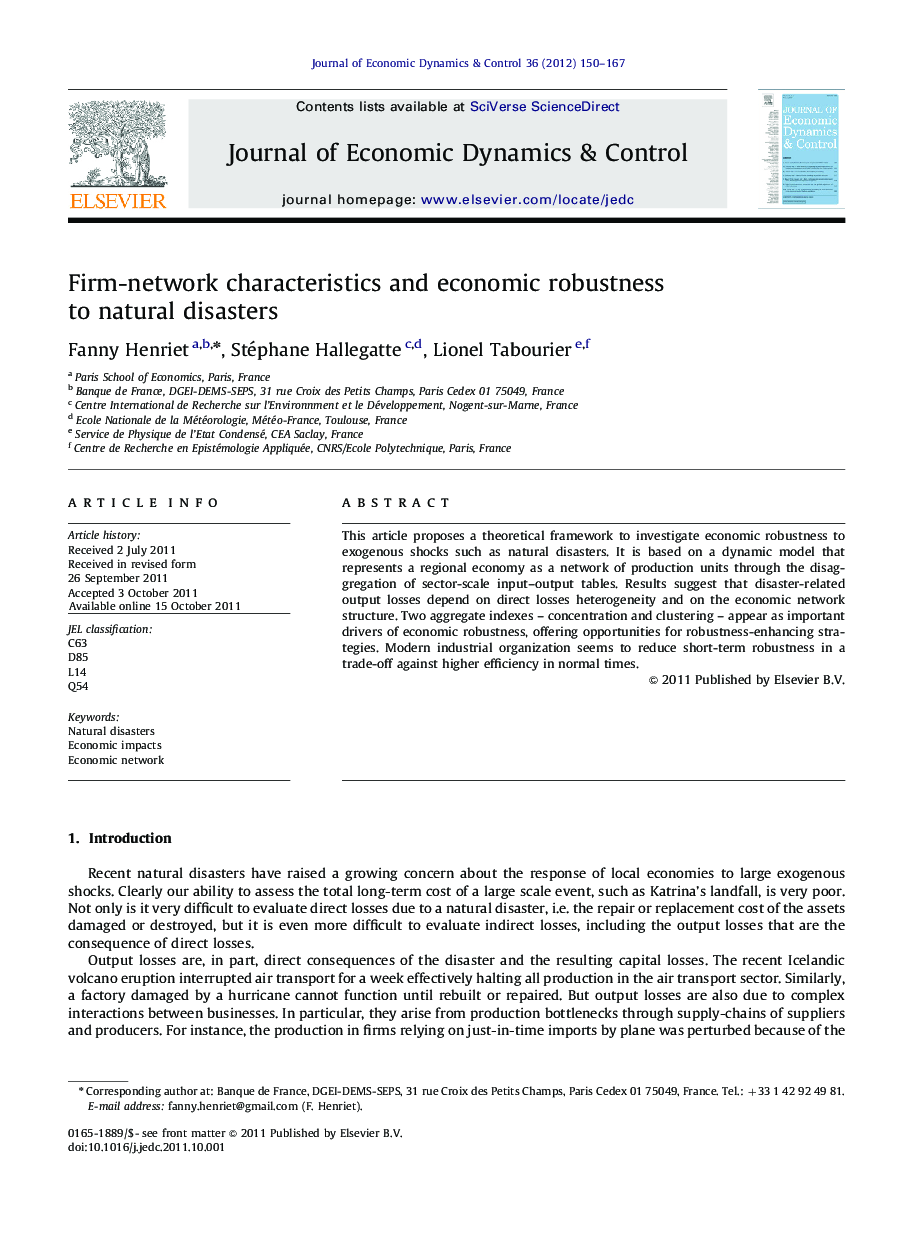| Article ID | Journal | Published Year | Pages | File Type |
|---|---|---|---|---|
| 5099237 | Journal of Economic Dynamics and Control | 2012 | 18 Pages |
Abstract
This article proposes a theoretical framework to investigate economic robustness to exogenous shocks such as natural disasters. It is based on a dynamic model that represents a regional economy as a network of production units through the disaggregation of sector-scale input-output tables. Results suggest that disaster-related output losses depend on direct losses heterogeneity and on the economic network structure. Two aggregate indexes - concentration and clustering - appear as important drivers of economic robustness, offering opportunities for robustness-enhancing strategies. Modern industrial organization seems to reduce short-term robustness in a trade-off against higher efficiency in normal times.
Related Topics
Physical Sciences and Engineering
Mathematics
Control and Optimization
Authors
Fanny Henriet, Stéphane Hallegatte, Lionel Tabourier,
